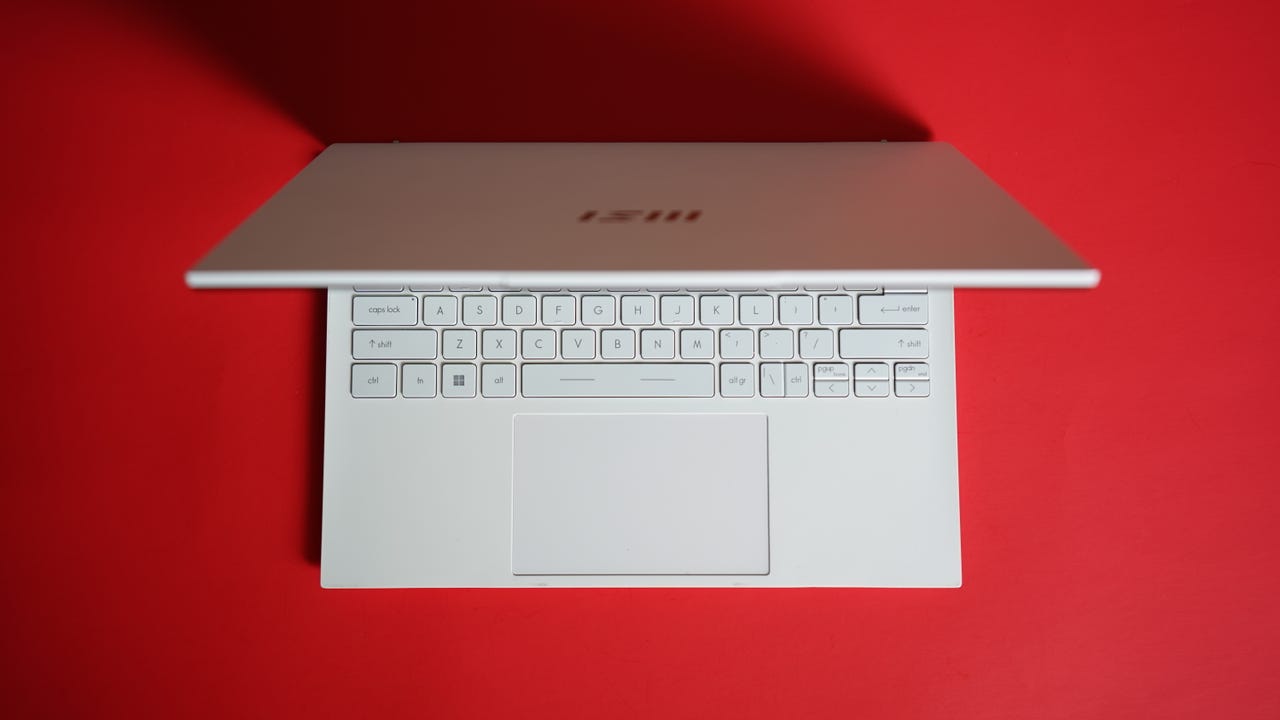Forget the MacBook Air: This Windows alternative weighs less and does more

MSI had my undivided attention back in CES when it demoed a stylus that could write on both paper and screen. It was also at that time when the company gave me a taste of its lightest laptop yet: The MSI Prestige 13 Evo. It weighs just shy of 2.2 pounds, making it impossible not to draw comparisons between the burdenless framework and that of Apple’s Macbook Air. While the M2 variant of the Apple laptop has remained my go-to for mobile computing, in many ways, the lesser-known MSI does the ultraportable better.
Also: This handy $24 kit can help you troubleshoot USB problems
The Prestige 13 Evo comes with a matte, glare-free, 13-inch display, a privacy-shuttered webcam that supports Windows Hello, up to 32GB of RAM, and all the ports you’d want, including HDMI and USB-A. MSI tells me the base $999 model (13th Gen Intel Core i5 with 16GB RAM) will be available by the end of this month, so I’d wait until then if you’re looking to save money. For now, I’d recommend opting for the higher-end Core i7, 32GB RAM, and 1TB model which costs the same as a specced-out MacBook Air but has twice the storage size.
My past few weeks of testing the MSI laptop have been refreshing. As someone who needs a work machine that’s just as reliable on the go as it is when docked to an external monitor at home, I’ve been leaning more towards Apple’s M1 and M2 laptops for their efficiency and no-frills performance. While benchmarks suggest that the Prestige 13 Evo’s Intel system is not as efficient as devices powered by Apple silicon, the overall user experience of the laptop is enough to replace them.
Also: Best Windows laptops you can buy
Flexibility is what sells the MSI laptop for me, from the slew of ports to the duality of biometric identification support (facial scan and fingerprint sensor). Switching gears from the Samsung Galaxy Book 3 Ultra I recently reviewed, it was a welcome surprise to see similar features trickle down to the less-expensive MSI laptop, including HDMI support, a MicroSD card slot, and a USB-A port. It’s rare to find them on a 13-inch build, let alone one that is built with nimbleness in mind.
More impressively, MSI managed to cram in a 75Wh battery in the Prestige 13 Evo, giving it a rated endurance of 15 hours per charge. I got about 12 hours of usage before needing to whip out the included 65W charger, but that’s still impressive when compared to similar-sized laptops that score in the 8 to 10 hours range, sometimes lower.
Also: I tried the new MSI Stealth 14 Studio and it’s a portable powerhouse
The enhanced battery life can mostly be attributed to the 75Wh capacity, though I’d also credit the generous spread of vents beaming out from the back of the laptop, as well as the lower-resolution, 1080p display. The latter of which is not a dealbreaker by any means; most content that we consume nowadays is in 1080p resolution, and you’ll barely notice the visual difference between it and a 2K panel on a 13-inch screen. But if you dabble in creative work that requires attention to detail, you’re best served outside of the compact laptop market, where 2K and even 4K displays are more prevalent.
By now, you can probably guess that while MSI specializes in gaming laptops, the Prestige 13 Evo is anything but that. There’s no ultra-clicky, RGB keyboard or 144Hz display to be found here. Instead, the laptop is for those who want a portable and compact Windows computer that’s capable of running the latest pro-grade apps and services, can last up to two days per charge, has a bevy of ports for creators, and won’t cost an arm and a leg, relatively speaking.
For all the latest Technology News Click Here
For the latest news and updates, follow us on Google News.
